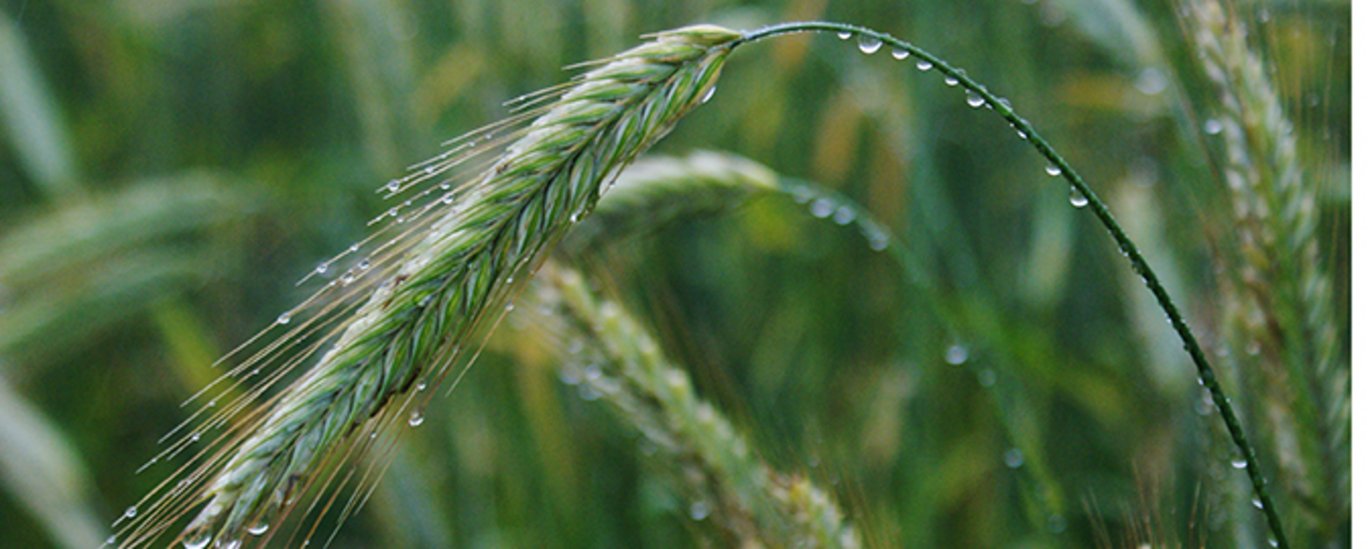Future scenarios could guide agricultural adaption to climate change
A new research project called PREAR seeks to understand how changing the sequence of future crop rotations could help us adapt to climate change, by maintaining not only agricultural production, but also biodiversity.

As our climate changes and becomes more variable, the crops we currently grow will become less reliable and more prone to unpredictable failure. Changes in cropping and productivity will lead to marked changes in the benefits we all gain from agricultural ecosystems (ecosystem service provision). To assure resilience to future climate change, farmers and policy-makers across the EU will require guidance and advice using robust, validated scenarios of potential crop rotations.
The European research project PREAR, funded within the framework of FACCE SURPLUS, will provide stakeholders and farmers with predictions about the effects of changes in agricultural cropping systems and ecosystem services - in order to make European agriculture more climate-resilient.
Changing farmers’ management
In Europe, arable crops are grown in rotations, in which crops are planted in sequence, one each year, to achieve particular agronomic and production goals (such as weed control, enhancing soil structure or supporting biodiversity). The aim of PREAR is to suggest crop rotation systems that will work under future climate, benefiting both the farmer and the environment.
The project is innovative because it considers the whole series of crops in rotation and trades off the range of environmental and economic outcomes; whereas most previous projects have only considered the consequences of changing a single crop. The project has clear practical impacts because farmers need to follow rotations, for real-world reasons such as disease control and the market, and they would like to be informed about better rotation choices based on scientific evidence. Policy-makers could also support this evidence-based best practice for the environmental benefits.
“The current crop rotation system achieves many of the economic requirements that farmers have now. We want to reduce the potential negative impact of changing rotations, with future climate, by identifying those with the best economic and environmental outcomes; thus making agricultural production more effective and more climate- and environmentally-friendly”, says Dr. David Bohan who is the project coordinator of PREAR.
Partners in the 3-year project include French National Institute for Agricultural Research INRA (FR), the Natural Environment Research Council’s Centre for Ecology & Hydrology (UK), Aarhus University (DK) and Szent Istvan University (HU) and the agricultural NGO Solagro (FR).
The project has been granted 716,000 € from the FACCE SURPLUS ERA-NET Cofund.
FACCE SURPLUS
FACCE SURPLUS is an ERA-NET under the Cofund scheme of Horizon 2020 of the European Union. FACCE SURPLUS calls for collaboration among 15 countries and the EU for transnational research projects on the thematic area of sustainable and resilient agriculture. Further joint activities that go beyond this co-funded call are planned in order to contribute to the establishment of a renewable bioeconomy in the ERA (European Research Area).
Further information
Dr. David Bohan
French National Institute for Agricultural Research (INRA)
Email: David.Bohan@dijon.inra.fr
Mobile: 0033 06 95 08 65 19
